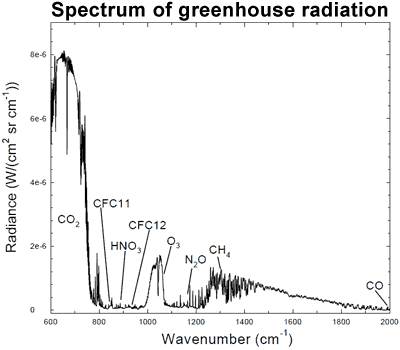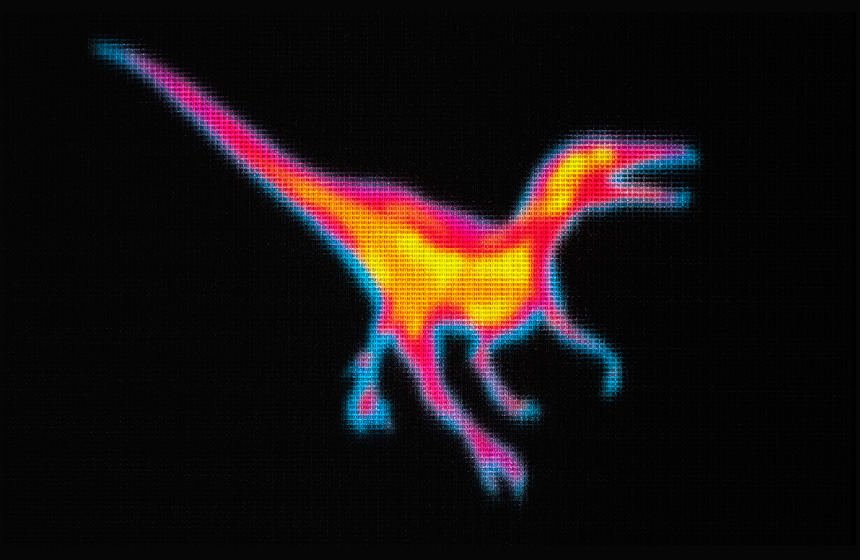|
|
Post by theropod on Dec 16, 2019 0:24:59 GMT 5
In the style of our other "index threads", this is a thread to list and debunk wrong claims about Anthropogenic Global Warming/Climate Change.We can be a bit flexible here, so feel free to refute incorrect claims with regard to climate change in general, not necessarily just outright denial. E.g. "Humans aren’t causing global warming, it is all caused by natural earth cycles" or "The rising temperatures were all faked [by a giant liberal conspiracy)" and "But it’s all India’s fault" or "We don’t need to do anything now, it’s only going to get a slightly more cosy temperature, no harm done" are all appropriate claims to rebutt here. Rules follow those outlined by creature elsewhere: Refute claims in the following format: 1. Summary of the claim or direct quote (with source). 2. Reasons why the claim is wrong (can be a bullet list or a text). 3. Sources for your own claims. While I have no direct example, the creationist thread shows how this might look:Happy refutation time! just going to leave this here for reference: www.unenvironment.org/resources/emissions-gap-report-2019www.ipcc.ch |
|
|
|
Post by creature386 on Dec 16, 2019 0:48:07 GMT 5
I wish I still had the notes for the-YouTube-video-that-would-never-be-realized I've planned on precisely that topic. Anyway, that's gonna be fun. Until we have any input here, I cannot recommend the index you can find here enough: skepticalscience.com |
|
|
|
Post by Infinity Blade on Dec 18, 2019 23:22:40 GMT 5
"Humans aren’t causing global warming, it is all caused by natural earth cycles"
I only really have one thing to say to this, partly because climate change science isn't my field of expertise. But here's my attempt at a basic rebuttal.
1.) The years 2014-2016 exhibited the hottest global temperatures on record by 2017. A study[1] from that year used climate model simulations and historical global climate data to find out how likely it was that these three years would have exhibited a trend of being the hottest on record without anthropogenic warming. What the authors found was that there was a negligible (<0.03%) chance that 2014-2016 would have been the hottest years on record without anthropogenic influences. While it was still unlikely to occur even with anthropogenic warming (~1-3% chance), it was not an impossible chance (indeed, this likelihood was up to two orders of magnitude greater than ignoring anthropogenic influence).
The authors also found, with the aforementioned methods, that the likelihood of observing three consecutive record breaks at some point between 2000 and the year of the study's publication (2017) was ~30-50% factoring in anthropogenic warming, but <0.7% when completely ignoring it.
Lastly, the authors found a roughly 1-in-a-million chance in observing the specific level of growth of warming in 2016 without anthropogenic warming. This probability was as high as 27% when taking anthropogenic warming into account.
In short, given the far higher probability that the record-breaking temperature changes from 2014-2016 would have been observed with anthropogenic warming than without, we have strong evidence that it is indeed humans who caused this rise in global temperature, and by extension rising temperatures throughout all the years before and since.
References:
[1] Mann, M., et al. (2017). Record temperature streak bears anthropogenic fingerprint. Geophysical Research Letters 44, doi: 10.1002/2017/GL074056
|
|
|
|
Post by dinosauria101 on Dec 19, 2019 0:31:32 GMT 5
Anyone know anything about Trump I can post on here?
|
|
|
|
Post by Life on Feb 26, 2020 2:29:13 GMT 5
Climate change have both anthropogenic and natural causes as of late. Study for reference: www.ccacoalition.org/en/resources/anthropogenic-and-natural-causes-climate-changeEl Niño events predate Industrial Revolution and a solid demonstration of natural aspects of climate change through time. Solar fluctuations are also a contributing factor in this matter. Politicization of climate science in favor of anthropogenic discourse is deplorable obstruction to damage industries. Ample evidence in following source: www.amazon.com/Deliberate-Corruption-Climate-Science/dp/0988877740 Credibility of climate science itself is on the line due to its politicization (i.e. studies having political underpinnings and/or being funded by political entities to advance politicized narratives). This critic extend both ways to anthropogenic climate change proponents as well as to climate change skeptics. My contention? Keep politics out of scientific discourse, and let genuine scientists/researchers figure things out on their own. |
|
|
|
Post by theropod on Mar 1, 2020 4:09:48 GMT 5
Claim: "There is scientific disagreement with regard to the main causative factors of climate change, with significant scepticism from pertinent individuals." 1) Those publishing on the subjects of "global warming"/"climate change" are essentially universally agreeing on this issue (https://doi.org/10.1177/0270467619886266). The cited study reviewed all 11,602 publications on these topics found by web of science for the first 7 months of 2019, and not a single one expressed any doubt on the consensus view that current climate change is anthropogenic in origin. hmm, that was a quick one.
The next one I am afraid is not a very scientific rebuttal, because it is not a very scientific claim Claim: "There is widespread corruption affecting the trustworthiness of climate science" 1) This is essentially an unfalsifiable claim. We can of course always go down the rabbit hole of "yes, all scientists say this, but all of them may simply be conspiring to do so for some unknown reason", yet we usually don’t do this in science, because we assume a current scientific consensus to be based on…well…science, and do not assume ulterior motives behind such science without evidence or even plausible motives. 2) Of course greenhouse gases being the main causative agent in the climate change we are currently seeing is so well-supported that it would be essentially impossible to produce this kind of evidence if it were not actually the case. For example you can provide experimental proof for the greenhouse effect with two bottles of coca-cola, a lamp and two accurate thermometers. Or a few empty jars and some other source of carbon dioxide, if you prefer. Surely one of the so-called "sceptics" would have actually published evidence disproving it by now, if it really didn’t exist, as doing so should then be rather easy, shouldn’t it? 3) From a more criminological perspective: Who has a motive for fostering corruption on this issue? It is certainly true that some of the work published on climate change did not adhere to best scientific practices with regards to competing interests, but this mainly affects the work of self-proclaimed "sceptics", not the consensus view. There are many parties with high stakes in opposing an ambitious climate policy, but very few with high stakes in making up a climate emergency that does not exist. Yes, there may be a few organic farmers and wind-turbine or solar panel manufacturers who would benefit from more strict environmental regulations economically. But these financial interests are minuscule compared to the financial stakes of all those players that are worried about tighter environmental regulations, such as fossil fuel companies. The latter are indeed known to willingly mislead the public on this issue (e.g. ¹) because doing so serves their economic interests. 4) Of course that is not to say scientists who are in line with the consensus view on climate change and its causes are infallible, they can make mistakes just as everyone else does. They may also have their own personal biases. But there is no reason to suspect these mistakes or biases would overwhelmingly lead them to conclude the same thing. Say climatologists are, for some reason, all incredibly prone to making calculation errors. Statistically, it would be just as likely for them to underestimate global warming or the role humans play in it as it would be to overestimate it. So even given this were the case, it would not explain the consensus. ¹https://www.theguardian.com/commentisfree/2019/oct/23/exxon-climate-change-fossil-fuels-disinformation dinosauria101 Let me get this straight: you want someone else to find a claim for you so you can post it? Why would they not simply post it themselves? But if you really want to, it’s easy enough to find (stupid) claims by Trump. His hogwash about "clean coal" or his all time favourite "the climate has been changing for millions of years [and therefore, it is not possible humans are affecting it now]" for example.
|
|
|
|
Post by creature386 on Mar 1, 2020 14:53:50 GMT 5
„CO2 only makes up 0.04% of the atmosphere.“ 1. I originally wanted to add a finishing clause of „therefore, it can’t cause global warming“ to the claim. I didn’t because many climate skeptics just deliver the argument just in this form (ad nauseam, I might add), as if, somehow, no of the climate scientist on Earth knew about this. The first question one might ask is „so what?“. The idea seems to be that, so long as the share of carbon dioxide in the atmosphere is negligible, any effect it must have is negligible, too. Allow me to introduce you to the wonderful chemical potassium cyanide, maybe you’ve heard of it. How much of do you need to consume to die? As it turns out, above 3 mg per liter blood is enough. [1]A liter is equivalent to a kilogram, so do the math. 1 kg = 1.000.000 mg. 3 mg / 1.000.000 mg = 0.0000003 = 0.00003% Even with such a low percentage, it has quite an effect! While some people laugh at comparing carbon dioxide to a potent poison (it’s so important to life, after all), this is just supposed to show that the underlying logic behind the argument is false. But let’s move on. 2. I was originally going to tackle the claim „there is no experimental evidence for the greenhouse effect“ first, but I wasn’t really motivated. Thus, I’ll leave the following explanation brief for those who want to tackle the claim in more detail. The most famous experiment pertaining to the greenhouse effect has got to be the one by John Tyndall in the 1850s. Just read the Wikipedia explanation. [2]What the experiment did was measure the infrared absorption of various gases. For reference, these are the most common gases in the dry atmosphere: [3][4]Nitrogen: 78.084% Oxygen: 20.946% Argon: 0.9340% Carbon dioxide: 0.04% Neon: 0.001818% Helium: 0.000524% Methane: 0.000179% So, what has John Tyndall found out? Well, infrared light (which is what ultimately causes global warming) passes nitrogen and oxygen with no effect and I’m more than sure that the same applies to argon, helium and neon. So, if you eliminate these, who is the most common gas? CO2! Methane is also a potent gas, but as most of you know, its concentration is also increased by human activity (or at least human-bred cow activity). 3. Below is a beautiful graph I’ve found on skepticalscience though it’s original source is a paper by Evans and Puckrin (2006). [5] The data seen here was taken from radiation measured at Earth’s surface. When radiation hits a greenhouse gas and the gas absorbs energy, the gas reflects some of this radiation back to Earth. Each of the greenhouse gases has a certain signature wavelength it absorbs though. So, by measuring the wavelength of the light that was reflected back to Earth, you can deduce the greenhouse gas it came in contact with. As the graph above shows, CO2 is by far the dominant greenhouse gas in the dry atmosphere. [1] Anseeuw, K; Delvau, N; Burillo-Putze, G; De Iaco, F; Geldner, G; Holmström, P; Lambert, Y; Sabbe, M (February 2013). „Cyanide poisoning by fire smoke inhalation: a European expert consensus". European Journal of Emergency Medicine. 20 (1): 2–9. doi:10.1097/mej.0b013e328357170b. PMID 22828651. [2] en.wikipedia.org/wiki/John_Tyndall#Main_scientific_work[3] en.wikipedia.org/wiki/Atmosphere_of_Earth#Composition[4] In all fairness, there is also water vapor which is not included into the dry atmosphere because its percentage keeps varying, but most of the time, it is above that of CO2. Water vapor likely has a greater impact on the greenhouse effect than CO2. However, the frequency of water vapor has been fairly constant over the last few centuries, so it is not the main culprit behind global warming. [5] Evans, WFJ; Puckrin, E (January 2006). „Measurements of the radiative surface forcing of climate“. 86th AMS Annual Meeting |
|
|
|
Post by Life on Mar 1, 2020 16:11:05 GMT 5
|
|
|
|
Post by dinosauria101 on Mar 1, 2020 18:01:55 GMT 5
theropod, it's pretty hard to follow the news (as in lots and lots of stuff always happening) and I don't really do it much. That was the thing.
|
|
|
|
Post by theropod on Mar 1, 2020 18:11:48 GMT 5
I have not read the book and have no intention of doing so based on this review (which sounds a lot like the same old excuses to discredit "mainstream science", e.g. "climategate", I can have that in youtube comments for free if I want), but it has to be noted that the "journal of scientific exploration" is not on the master journal list (https://mjl.clarivate.com/search-results), doesn’t appear to have an ISSN, and it and the society publishing it is comitted to pseudoscience. It should at the very least make one suspicious if the associate editors’ affiliations include "Parapsychology Foundation" and "Center for UFO Studies" and the tags on recent issues are stuff like "paranormal", "parapsychology", "ghosts", "Psi", "spirituality", "UFOs", "posession", "homeopathy", "mind-matter interaction", "seance", "precognition" etc. One shouldn’t automatically believe everything such a journal publishes, even less so than with proper scientific journals.
|
|
|
|
Post by Life on Mar 1, 2020 18:36:39 GMT 5
I have not read the book and have no intention of doing so based on this review (which sounds a lot like the same old excuses to discredit "mainstream science", e.g. "climategate", I can have that in youtube comments for free if I want), but it has to be noted that the "journal of scientific exploration" is not on the master journal list (https://mjl.clarivate.com/search-results), doesn’t appear to have an ISSN, and it and the society publishing it is comitted to pseudoscience. It should at the very least make one suspicious if the associate editors’ affiliations include "Parapsychology Foundation" and "Center for UFO Studies" and the tags on recent issues are stuff like "paranormal", "parapsychology", "ghosts", "Psi", "spirituality", "UFOs", "posession", "homeopathy", "mind-matter interaction", "seance", "precognition" etc. One shouldn’t If you do not want to read the suggested book than how can you be in the position to dispute its contents? And this book is from a climate scientist as well. I have posted an academic review of the book because it expands on the structure and composition of its content. Perhaps a reader will find it interesting enough to consider buying the book itself, I will. Now, this is latest: www.forbes.com/sites/rogerpielke/2020/01/02/how-billionaires-tom-steyer-and-michael-bloomberg-corrupted-climate-science/Still think Climate Science is not being politicized? I am sorry but this is actually happening and numerous climate scientists are not apolitical either. Take this from an academic: Money talks and academics is not apolitical. Secondly, quality journals can have biased editors at times; I know as much from personal experience. |
|
|
|
Post by theropod on Mar 1, 2020 18:41:42 GMT 5
Claim¹: According to one IPPC expert reviewer⁵ (David Wojick), “what is systematically omitted from the SPM are precisely the uncertainties and positive counterevidence that might negate the human interference theory. Instead of assessing these objections, the Summary confidently asserts just those findings that support its case. In short, this is advocacy, not assessment.”
1) This posits the IPCC "systematically omits" uncertainties and positive counterevidence from its SPMs to push its agenda ("AGW is true").
2) Regarding the claim of "systematically omitting uncertainties", this, as an example, is what the first two main SPM paragraphs of the 2018 special assessment report on 1.5° warming² look like:
Expressions of uncertainty levels are bolded. The IPCC has an entire documentation on how to properly report uncertainty in both their SPMs and their full reports³. The entire SPM continues in a similar style, making extensive use of these terms to quantify the confidence in each individual statement they make. Saying the IPCC is omitting uncertainties is rather baffling, as I have never seen a scientific study anywhere that is as transparent about confidence levels and uncertainties as the IPCC is in their reports. And I am a frequent critic of that (studies forgetting to give confidence levels), as some of you know.
3) Regarding the accusation of positive counterevidence being omitted, this is once more a non-falsifiable statement. Of course we can always make the claim that 100% of the world’s scientific publications⁴ omit evidence, the question is, why should we? It would be the responsibility of the one making such claims to provide evidence for them (Is solar or cosmic irradiance massively increasing without anyone knowing about it? Is the greenhouse effect a hoax? Do humans not actually emit any greenhouse gases?), but it is not the fault of scientists if their consensus view overall is so well-supported that they tend to not observe any counterevidence. That is not automatically proof that there is, and it is being suppressed, just as someone not having a criminal record is not automatically proof that they are actually a master-criminal who excels at covering up his crimes.
4) That being said, the IPCC do not cover up "counterevidence" where it does exist, neither do they cover up errors, on the contrary, they adhere to good scientific practice in recording them⁶.
¹https://www.scientificexploration.org/docs/28/jse_28_3_ReviewCranganu.pdf
²https://www.ipcc.ch/sr15/chapter/spm/
³https://www.ipcc.ch/site/assets/uploads/2017/08/AR5_Uncertainty_Guidance_Note.pdf
⁴https://doi.org/10.1177/0270467619886266
⁵Should be noted: an "expert reviewer" is just any ordinary person who chooses to submit a review question to the IPCC, which anyone can do, no qualifications required. Excessive usage of terms like "expert reviewers" by "sceptics" mirrors their excessive reliance on scholarly credentials in fields with no relevance to climatology in attempting to misguide the public about their credibility.
⁶https://www.ipcc.ch/sr15/about/error-protocol/
|
|
|
|
Post by theropod on Mar 1, 2020 18:50:11 GMT 5
I have not read the book and have no intention of doing so based on this review (which sounds a lot like the same old excuses to discredit "mainstream science", e.g. "climategate", I can have that in youtube comments for free if I want), but it has to be noted that the "journal of scientific exploration" is not on the master journal list (https://mjl.clarivate.com/search-results), doesn’t appear to have an ISSN, and it and the society publishing it is comitted to pseudoscience. It should at the very least make one suspicious if the associate editors’ affiliations include "Parapsychology Foundation" and "Center for UFO Studies" and the tags on recent issues are stuff like "paranormal", "parapsychology", "ghosts", "Psi", "spirituality", "UFOs", "posession", "homeopathy", "mind-matter interaction", "seance", "precognition" etc. One shouldn’t If you do not want to read the suggested book that how can you be in the position to dispute its contents? And this book is from a climate scientist as well. I have posted an academic review of the book because it expands on the structure and composition of its content. Perhaps a reader will find it interesting enough to consider buying the book itself, I will. Now, this is latest: www.forbes.com/sites/rogerpielke/2020/01/02/how-billionaires-tom-steyer-and-michael-bloomberg-corrupted-climate-science/Still think Climate Science is not being politicized? I am sorry but this is actually happening and numerous climate scientists are not apolitical either. Take this from an academic: Money talks. I am not disputing the contents of the book. As I wrote, I have not read it, and am not intending to do so. I am disputing the contents of this "academic" review (published in a pseudoscience journal and containing numerous wrong claims). The core message, if the review is to be believed also of the book, is the same old "climate science is a hoax invented to push a liberal leftist agenda", which becomes obvious BS if you look back even 30 years, when even staunch conservatives were fully on board with political action against climate change. Nobody is saying climatologists are necessarily apolitical individuals, although I would argue that often they become political as a result of their scientific work, not the other way around. But the review, and presumably the book, is claiming the scientific consensus is wrong because of overwhelming political biases not just affecting individual peoples’ work, but also the entire scientific community, which is plain ridiculous. And they basically argue that others are politically biased while not even making any effort to hide their own political agenda, that environmentalism is fundamentally "liberal" and "leftist". You see, it’s not that climate science is never hijacked to push a political agenda, not even that it is never that "liberal leftist plot". It’s just that this is not a reason to discredit "mainstream science" or the scientific consensus, on the contrary, it is science perfectly in line with this consensus that is refuting bad science (e.g. ¹), overly alarmist or otherwise. The baseline that all serious scientists agree upon is this: Humans emit CO 2 and other greenhouse gases such as methane and N 2O through burning of fossil fuels and changes in land use. Forcing from infrared absorption by these gases, primarily CO 2, explains the observed increase in global temperatures. Further increases in the atmospheric levels of these greenhouse gases will lead to further warming, which we can expect to rise to very dangerous levels if not counteracted. It is not "we will all die in 8 years" or "the earth will warm by 8 degrees by the end of the century", those are strawman arguments. Current best estimates are that the earth will warm by 3-4° based on the current trends, which is already dangerous enough to necessitate drastic political action. On the other hand, entirely focusing on pieces of science that have perhaps been too alarmist, especially when strewing in wrong claims (e.g. "climategate", or "there is significant uncertainty as to whether humans are responsible") is extremely misleading, especially when likewise ignoring the much more significant scientific dishonesty from those who tried or still try to discredit the consensus. So alarmism is sometimes politicized, but are you telling me that denialism isn’t way more politicized? ¹https://www.nature.com/articles/d41586-020-00177-3 ²https://doi.org/10.1038/nclimate3352 |
|
|
|
Post by creature386 on Mar 1, 2020 19:01:15 GMT 5
theropod, it's pretty hard to follow the news (as in lots and lots of stuff always happening) and I don't really do it much. That was the thing. Well, it's not like Trump ever retracts his claims or if they ever get dated (no matter how often they get refuted, someone still believe them). Even if you find a three year old claim from him, it's still relevant to this thread. |
|
|
|
Post by dinosauria101 on Mar 1, 2020 19:03:14 GMT 5
So anything at all from any point? That's easy enough
|
|












